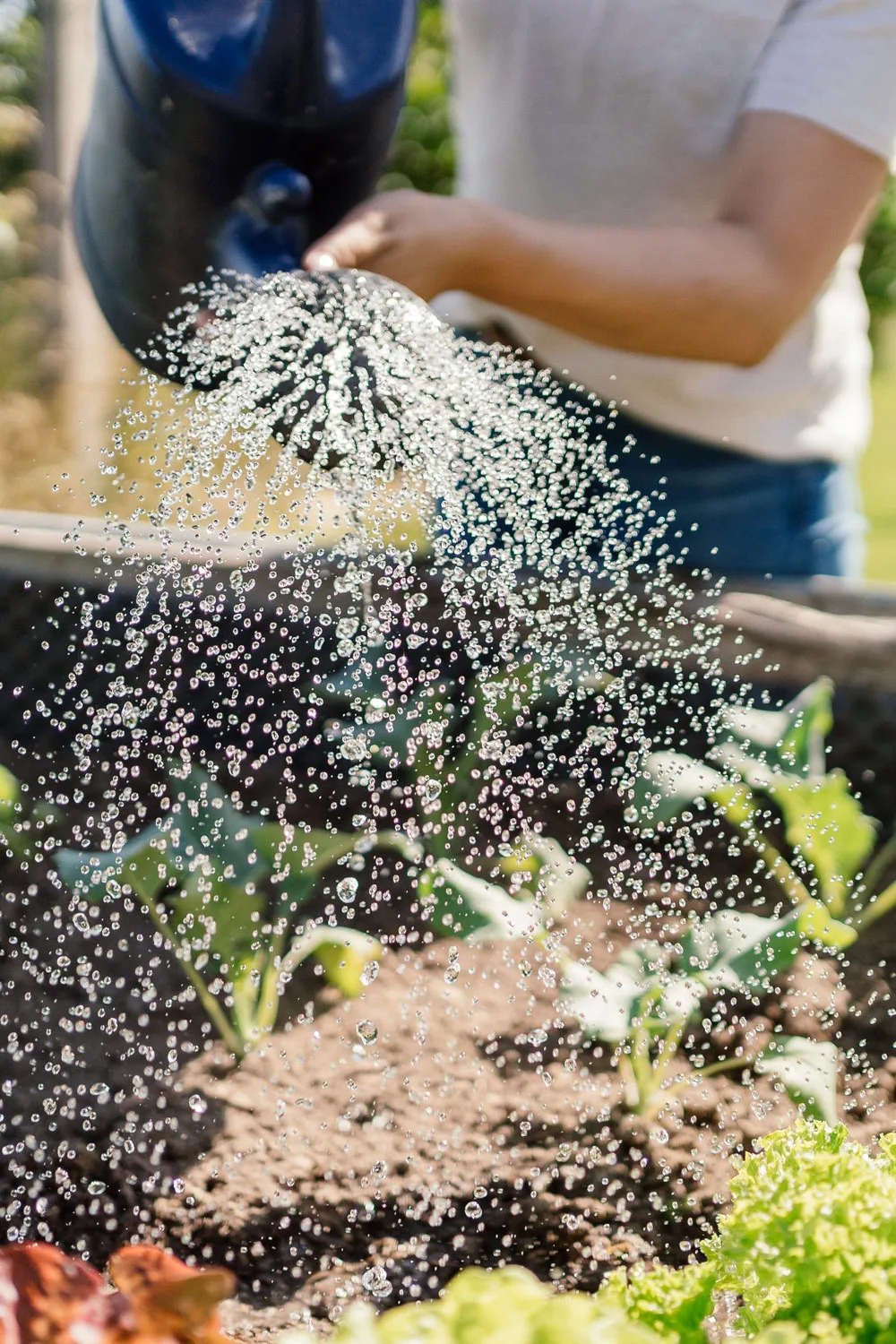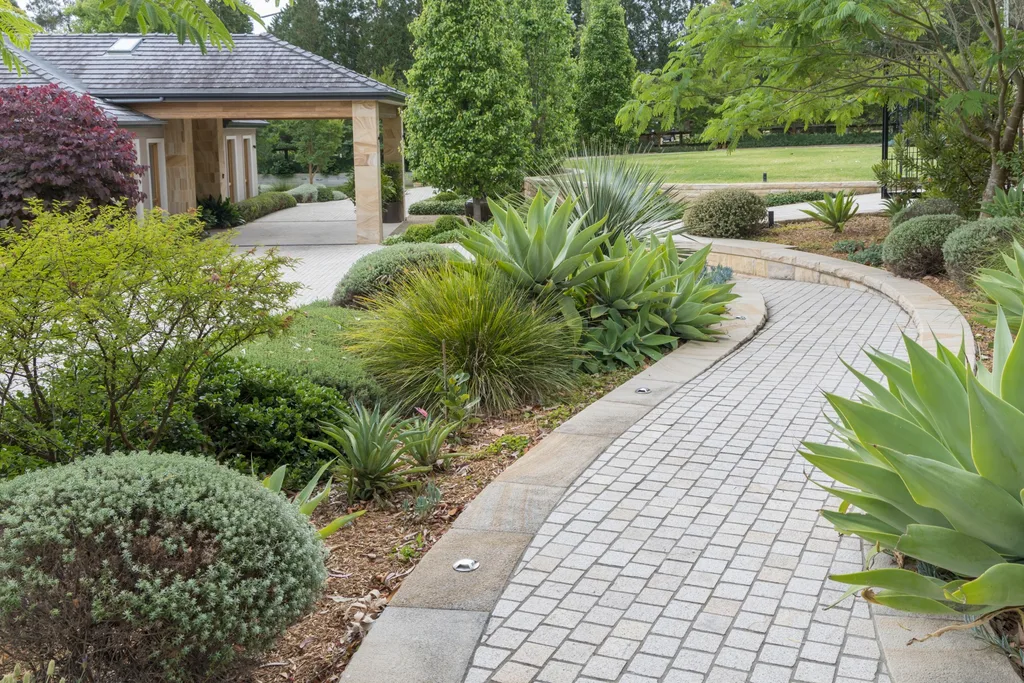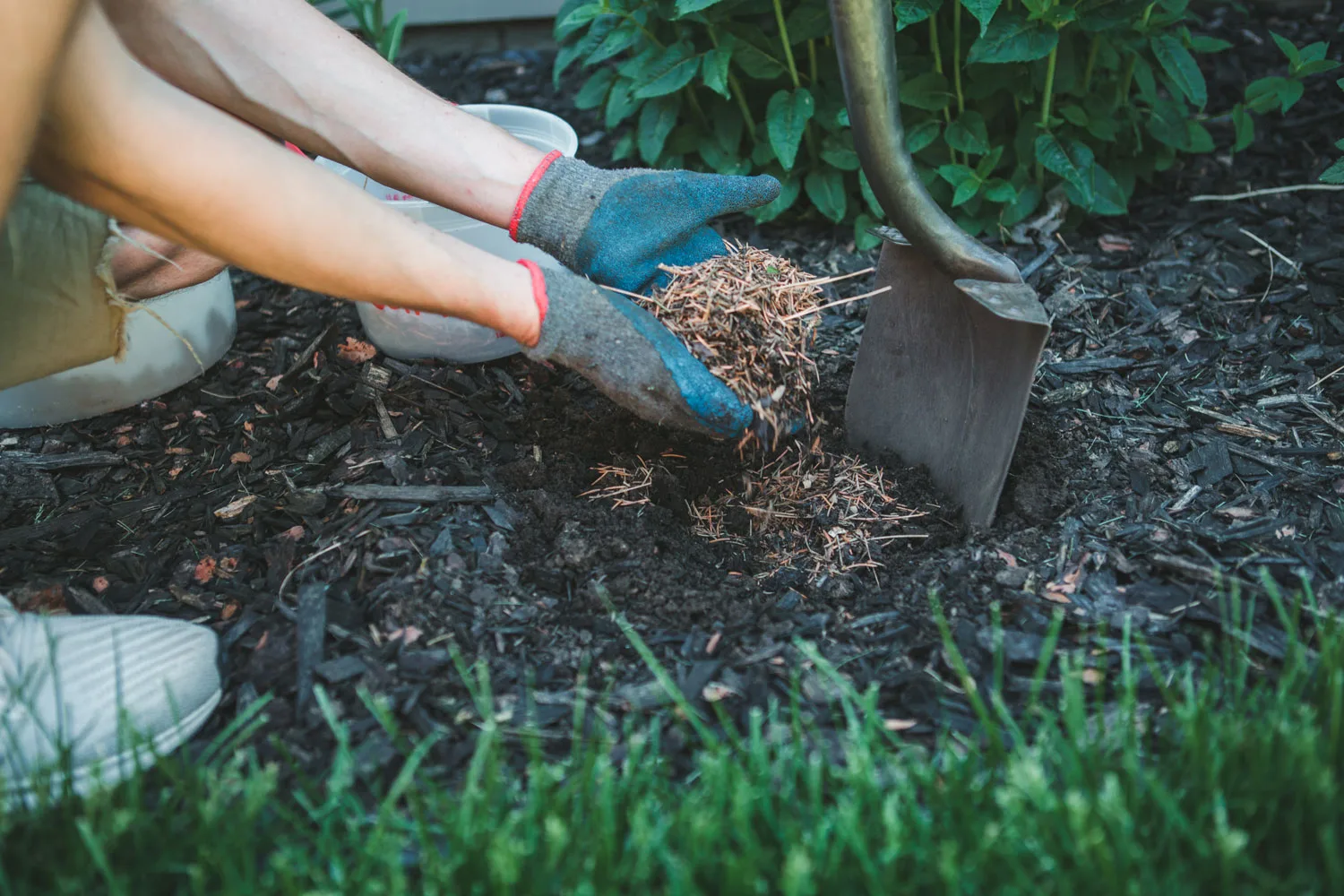
Prepare Your Garden For The Summer Heat With These Tips
It’s no secret that we are in for a hot summer. And if you’re wondering how to help prepare your garden for warmer temperatures, we’ve got some great tips for you.
Lydia Blocksidge is the Head Gardener at The Zin House in Mudgee. She says summer is an “abundant but challenging season”.
“It is the season of fruit in Mudgee. I’m looking forward to harvesting our stone fruit, including peaches, nectarines, apricots, apples, pears, figs and pomegranates.
I also can’t wait for our tomatoes (the flavour is incredible!), to make passata.
“It’s also a wonderful season for flowers, including sunflowers, marigolds, zinnias and dahlias.”

Lydia shares her top summer gardening tips.
What you should be doing in your garden
Add mulch
There are a lot of benefits to mulching your garden, one of them being helping to retain moisture. Another is to suppress weed growth.
Lydia says, “Mulch is the best way to prepare your garden for the summer as it helps retain moisture and protects the soil from the harsh summer elements like sun, wind and rain.”
Lydia adds: “Some of my favourite mulches are lucerne and sugar cane (be sure to find certified organic/chemical spray-free) and dry wood chips. You can also use leaf mulch from around your garden for smaller projects.

Grow cover crops
Cover crops are a great way to prepare your soil for summer.
“Cover crop has many functions and benefits, but introducing roots into your soil is particularly important in summer. This improves the soil’s water-holding capacity, helping retain soil moisture in the heat.”
Your cover crop depends on the season, but Lydia recommends “a mix of at least 5 species serving different functions (e.g. breaking up compact soil, attesting nitrogen, etc.) is best.
“Some summer favourites are sunflower, cowpea, lablab, vetch & buckwheat.”
Create microclimates in your garden
When you create a microclimate, the plants start supporting each other, which means less work for you.
“One way of doing this is by planting your produce where trees shadows are cast to give relief from the sun, especially afternoon shade, as the sun tends to be most harsh in the afternoon,” says Lydia.

Things you should avoid doing in your garden in summer
Don’t plant out of season
There’s a time and a place for everything, including when to plant crops.
“For example, tender, leafy greens don’t do well in the summer heat and will bolt (set flower and turn bitter) before they mature,” says Lydia.
Avoid watering your garden in the middle of the day
Lydia says, “The droplets act as a magnifying glass and can burn your plants. Instead, it’s best to water at dawn or dusk.”
Don’t plant monocultures
Monoculture is growing one crop species in a field or garden bed.
Lydia says, “Instead, plant a diverse range of produce, each reaching maturity at different times, so harvests are staggered and support a diverse range of microbial life in and above the soil.”
Don’t let your soil dry out
Keeping an eye on your soil’s moisture during a hot summer is essential.
“This causes your plants to get stressed, and pests and diseases move in,” says Lydia. “Dry soil also loses its ability to retain moisture by forming a ‘crust’ on the surface, making it difficult for water to filter through.”



